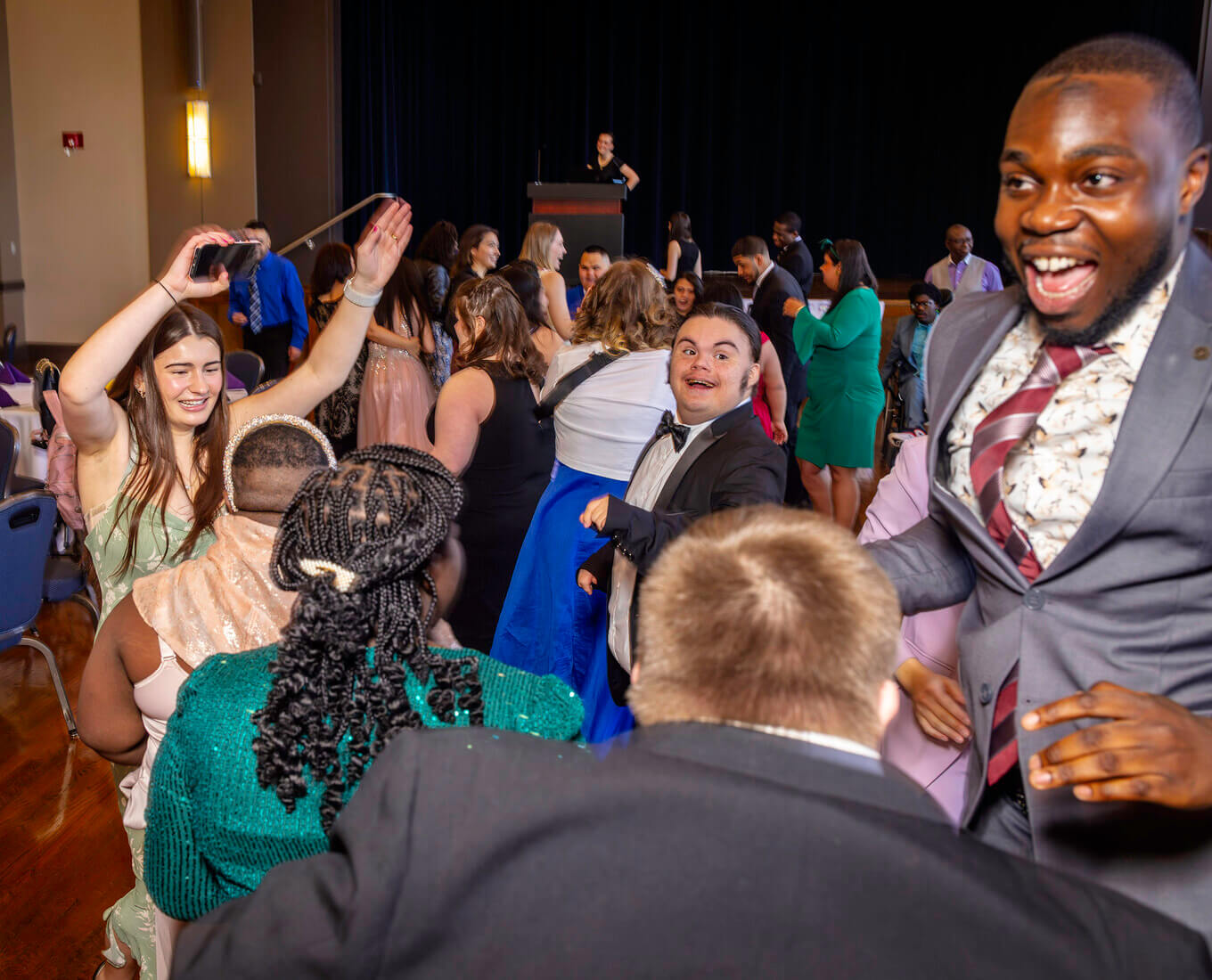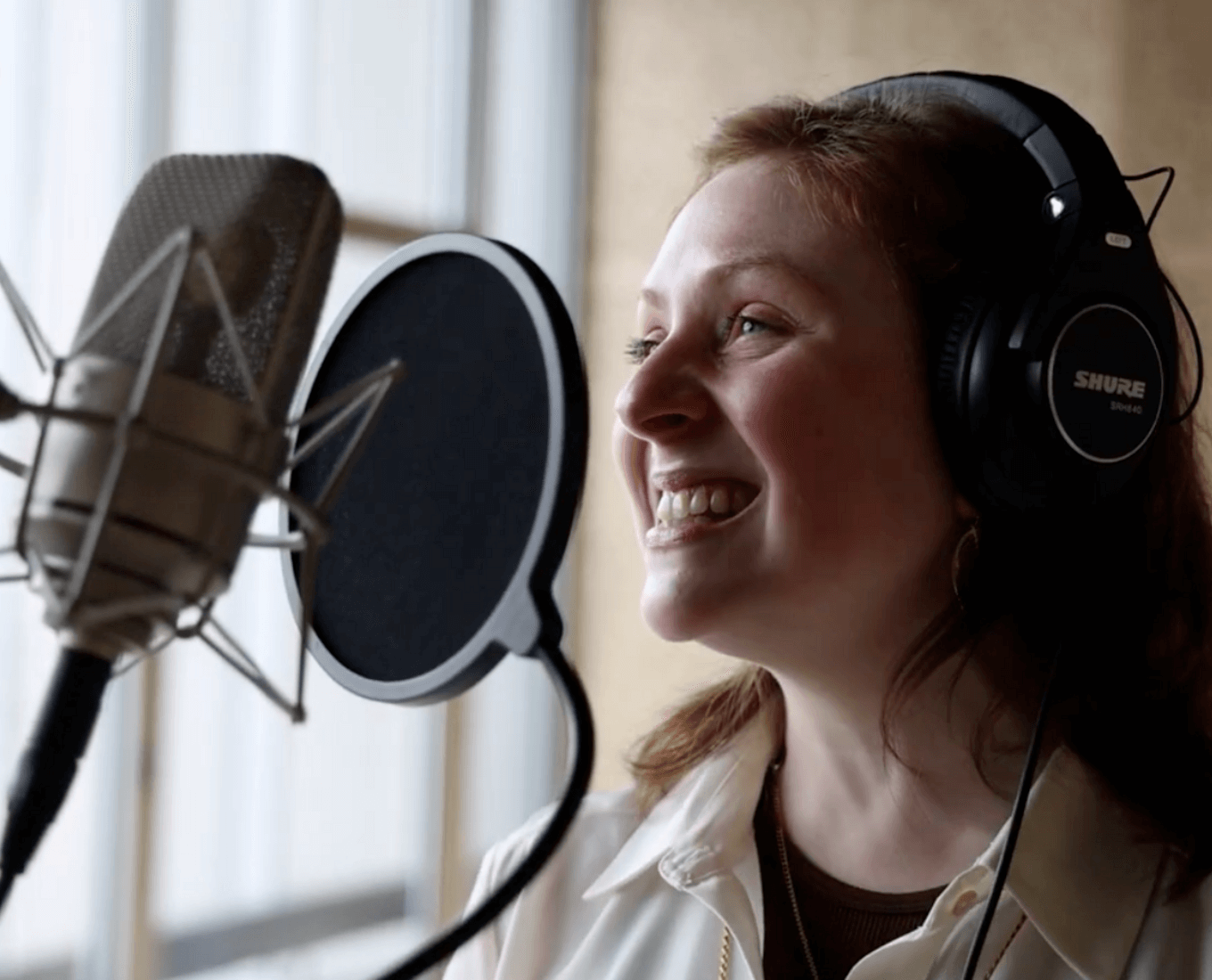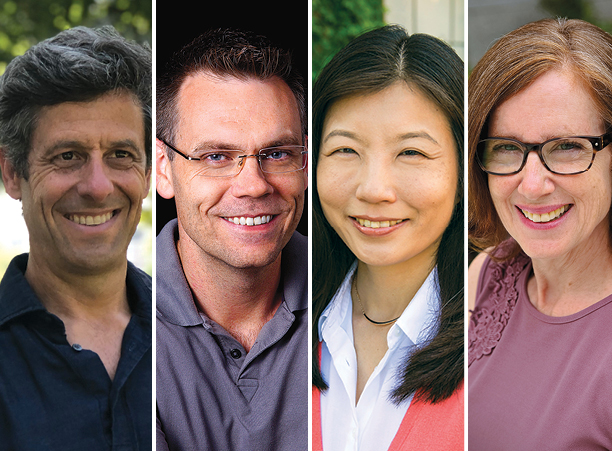
Four Holy Cross faculty members across three departments have been promoted to the rank of professor this fall, in recognition of their scholarship, teaching, mentorship and service to the College.
Jeffrey Dixon, Sociology and Anthropology
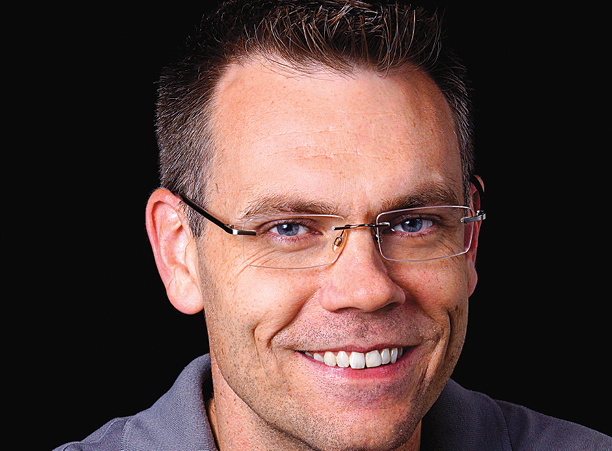 Jeffrey Dixon, professor of sociology
Jeffrey Dixon, professor of sociology
Jeffrey Dixon, of the Department of Sociology and Anthropology, earned his B.S. in secondary education from Wright State University and his master's and Ph.D. in sociology from Indiana University, Bloomington. A recipient of many grants, fellowships and awards, his research and teaching interests include political sociology, work, social stratification, research methods, race, ethnicity and immigration. He has been a member of the Holy Cross faculty since 2009.
At this point in your career, what is your proudest accomplishment?
The academic/professional accomplishment I am proudest of is earning my Ph.D.
In 2013, you were co-recipient of a large grant from the National Science Foundation, with which you analyzed on a global scale people's perception of job insecurity, particularly in regards to part-time work. What is your takeaway about the impact of 2020 on the labor market and job insecurity so far?
My colleague Andrew S. Cameron-Fullerton and I were honored to have been awarded this grant several years ago. With Fullerton and other colleagues, we find variation across countries in the levels and types of insecurity workers face, which can have still other negative consequences for workers. It is well known that economic conditions, such as unemployment rates, are related to cross-national variation in the extent of worker insecurity, and according to our research, so too are countries' institutions, such as their norms and labor policies.
Specifically, our studies have focused on cross-national variation in the definitions, prevalence and protections of part-time work, which serve as an institutional environment that can exacerbate or mitigate insecurity for part-time and other workers. The data we analyzed was largely collected prior to the 2007/2008 economic crisis, and if the patterns we find extend to 2020, they suggest that countries can take action to mitigate workers' insecurity.
Jumi Hayaki, Psychology
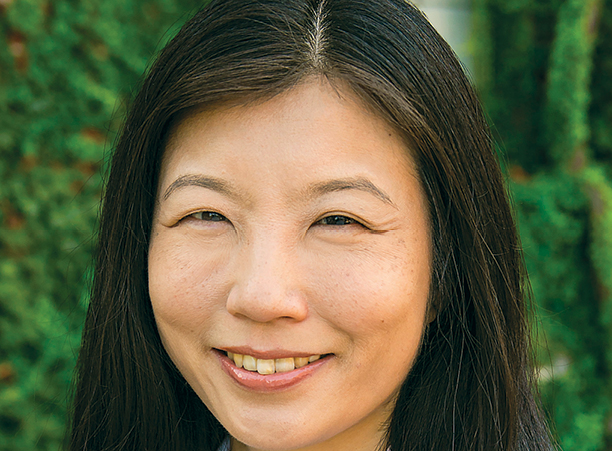 Jumi Hayaki, professor of psychology
Jumi Hayaki, professor of psychology
Jumi Hayaki, of the Department of Psychology, earned a B.A. in psychology from Yale University and a Ph.D. in psychology from Rutgers University. She is a widely published clinical psychologist whose research focuses on processes of emotion regulation as they relate to eating disorders and substance use disorders. She has been a member of the Holy Cross faculty since 2007.
At this point in your career, what is your proudest accomplishment?
My interest in the role of emotion dysregulation in eating and substance use disorders began years ago in graduate school. My subfields have grown substantially since that time, and it's been really exciting to contribute to that dialogue through my research program. Imagining and reimagining the clinical applications of my work has been the most rewarding part. As we better understand the emotional processes underlying disordered eating and substance abuse, we can improve our interventions.
You have provided Holy Cross students with many opportunities to work with you, either co-authoring journal articles or presenting at professional conferences. How does working with students in these settings impact you as a researcher, author and educator?
My goal, both in the classroom and in the laboratory, is to model the science of clinical psychology for the next generation of scholars. Whether dissecting the nature and treatment of psychiatric disorders in my class or analyzing data collected in my lab, I encourage students to question not only what we know, but also how we came to know and why we only know part.
These probing questions are crucial in my field, which often interfaces with popular culture and personal experience. Engaging in these sorts of inquiry with students has also, in turn, made me think more critically about how to disseminate knowledge from the clinical psychology field to the world. I look forward to continuing the questions.
David Karmon, Visual Arts
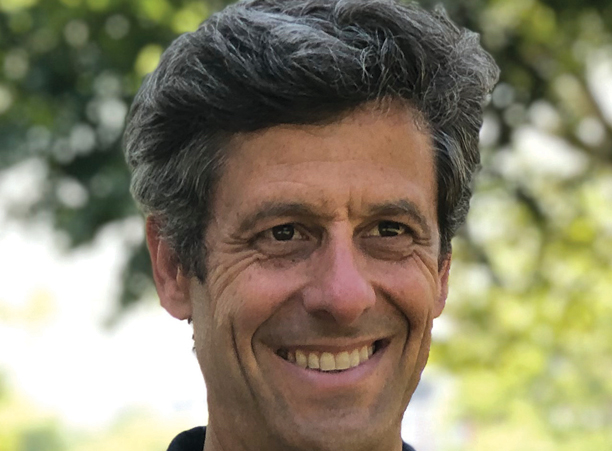 David Karmon, professor of visual arts
David Karmon, professor of visual arts
David Karmon, of the Department of Visual Arts, received his B.A. from the University of California at Berkeley, his M.Arch. from the Yale School of Architecture, and his Ph.D. in history of art and architecture from Harvard University. He is a fellow of the American Academy in Rome and editor of the Journal of the Society of Architectural Historians. His research focuses on the history and theory of architecture and urban form and the study of sensory experience and perception. He has been a member of the faculty at Holy Cross since 2007.
At this point in your career, what is your proudest accomplishment?
This fall I have a new book coming out, "Architecture and the Senses in the Italian Renaissance," and I was recently named editor of the flagship journal in my field. I'm also excited about spearheading collaborative multidisciplinary initiatives, such as a new course on geology and architecture that I'm team-teaching in Italy with my colleague Sara Mitchell from the biology department.
A recurring theme in your work is the exploration of the many ways our physical surroundings change over time. How can we, as nonexperts, look at our familiar, everyday environments and see something new?
A recent study by the U.S. Environmental Protection Agency shows that Americans spend almost 90% of their lives inside buildings, a sobering statistic that nevertheless reinforces the critical importance of good architectural design in our day-to-day lives. Although we often take buildings and urban spaces for granted, these structures have a profound impact upon us, shaping not only how we act, but how we think. The study of early modern buildings and urban spaces affords intriguing perspectives on our present condition, drawing attention to the constant evolution and transformation of built environments and the people who occupy them over time. When we consider how architecture acts as a kind of experiential trigger for each one of us, even our most familiar surroundings take on new and unexpected dimensions.
Susan Crawford Sullivan, Sociology and Anthropology
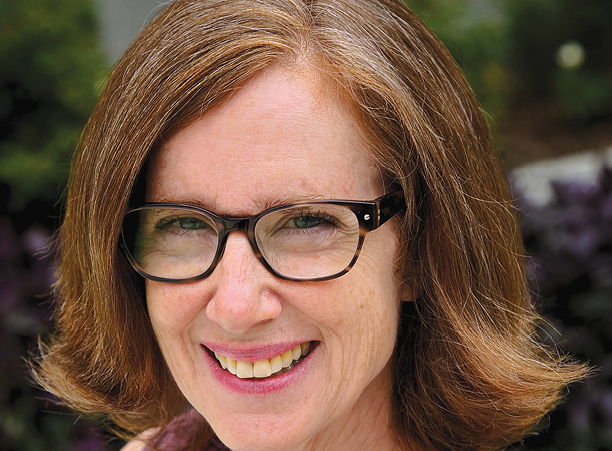 Susan Crawford Sullivan, professor of sociology
Susan Crawford Sullivan, professor of sociology
Susan Crawford Sullivan, of the Department of Sociology and Anthropology, earned a B.A. in mathematics from Duke University, a master's in public affairs from Princeton University's School of Public and International Affairs and a master's and Ph.D. in sociology from Harvard University. A frequent keynote speaker, lecturer and moderator at conferences and events across the U.S. and abroad, her academic interests include religion, poverty and public policy, family, community-based learning and Catholic social teaching. She has been a member of the Holy Cross faculty since 2005.
At this point in your career, what is your proudest accomplishment?
I am most proud of the work I have been able to do with Holy Cross students: in the classroom, as a research supervisor and as a mentor. I have so enjoyed seeing our wonderful students grow and flourish. As a scholar, I am also proud of the impact that my first book, "Living Faith: Everyday Religion and Mothers in Poverty" (University of Chicago Press 2011, on the role of faith and religion in the lives of low-income mothers), has had in the field of sociology of religion and outside academia.
You graduated with a bachelor's degree in mathematics and later earned advanced degrees in public affairs and sociology. What inspired you to move into these seemingly disparate subject areas?
I loved studying math as an undergraduate, almost finished a second major in medieval and Renaissance studies, and never thought to take a sociology course. After college, I moved into a variety of jobs, including with nonprofit social service organizations, working full time for Catholic Charities and living overseas consulting for UNICEF in Mozambique and Nepal. I went back to graduate school in public policy (what Princeton calls public affairs) to get a professional master's degree to move into nonprofit administration. The program was mostly economics and political science, but when I took a few sociology courses, I was hooked! My degrees are not as disparate as they may seem, as there is a lot of quantitative research done in sociology, and sociological studies can inform public policy. In some ways, it has come full circle, as I teach the required statistics course for sociology majors at Holy Cross, which is very rewarding.
Written by College Marketing and Communications for the Fall 2020 issue of Holy Cross Magazine.
About Holy Cross Magazine
Holy Cross Magazine (HCM) is the quarterly alumni publication of the College of the Holy Cross. The award-winning publication is mailed to alumni and friends of the College and includes intriguing profiles, make-you-think features, alumni news, exclusive photos and more. Visit magazine.holycross.edu/about to contact HCM, submit alumni class notes, milestones, or letters to the editor.

